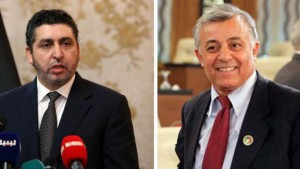The EU has grown weary of those impeding the peace process in Libya. On January 26, diplomatic sources in Brussels told Libyan newspaper Bawabat al-Wasat Online that the obstacles hindering the completion of the peace agreement have triggered a sense of helplessness and frustration that could drive the EU to consider imposing sanctions on certain Libyan figures.
The EU has begun to seriously consider imposing travel bans and asset freezes on parties it believes are impeding the political process in Libya. The sanctions will include the head of Libya’s General National Congress, Nouri Abusahmain, and the head of the Tripoli-based National Salvation Government, Khalifa al-Ghwell. Other names being considered include president of Libya’s parliament in Tobruk, Aguila Saleh, and the boycotting Member of Parliament, Abdel Raouf Al-Manai.
According to a European diplomat, quoted by Bawabat al-Wasat Online, the credibility of the EU is on the line, and the UN resolutions are clear when it comes to punishing those blocking the political process. The European diplomat added that specific recommendations have already been issued by several European foreign ministers.
A European diplomat highlighted that the efforts by the UN envoy to Libya, Martin Kobler, are considered the final attempt at reaching a consensus in Libya. He declared that the EU is as afflicted by the Libyan crisis as the regular Libyan citizens. He then emphasized that the region can no longer deal with the heavy repercussions of the Libyan security conflicts that have led to increased illegal immigration, instability, and heightened terrorist activity.
cosmonitor.com



